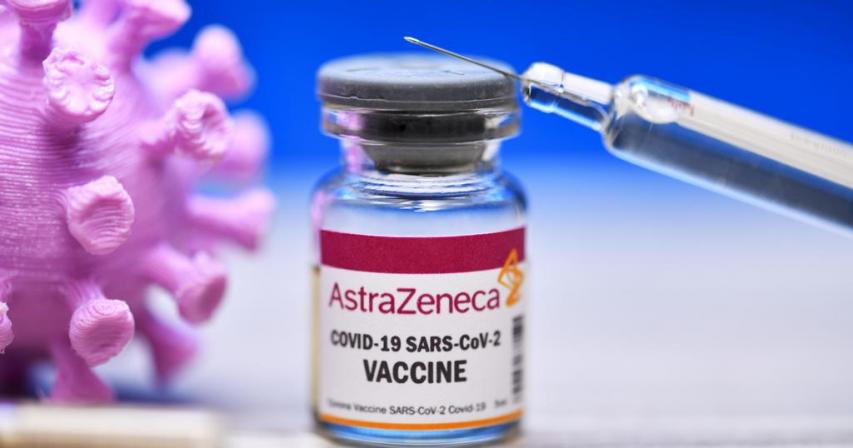Covid-19 - Netherlands suspends use of AstraZeneca vaccine
- 4 years ago

The Netherlands has become the latest country to suspend use of the Oxford-AstraZeneca coronavirus vaccine over concerns about possible side effects.
The World Health Organization and the European Medicines Agency say there is no indication of a link between the vaccine and reports of blood clots.
Eight countries have so far fully suspended the AstraZeneca vaccinations.
Cases of clotting in vaccinated people are "no higher than the number seen in the general population", the EMA says.
About 17 million people in the EU and the UK have received a dose of the vaccine, with fewer than 40 cases of blood clots reported as of last week, AstraZeneca said.
The Dutch government said its move, which will last until at least 29 March, was a precaution.
The Irish Republic took similar action over blood clotting reports in Norway. Denmark, Norway, Bulgaria, Iceland, the Democratic Republic of Congo and Thailand have all suspended inoculations with the vaccine. Several European countries, including Italy and Austria, have suspended the use of certain batches of the drug as a precautionary measure.
The EMA - which is currently carrying out a review into incidents of blood clots - said the vaccine could continue to be administered.
The UK medicines regulator also said evidence "does not suggest" the jab causes clots, as it urged people in the country to get the vaccine when asked to do so.
Professor Andrew Pollard, director of the Oxford vaccine group which developed the Oxford-AstraZeneca jab, told the BBC's Today programme there was "very reassuring evidence that there is no increase in a blood clot phenomenon here in the UK, where most of the doses in Europe [have] been given so far".
Finland has also done a "very careful study" and not found an increased risk, he added.
"It's absolutely critical that we don't have a problem of not vaccinating people and have the balance of a huge risk - a known risk of Covid - against what appears so far from the data that we've got from the regulators - no signal of a problem," he said.
What measures did the Dutch government take?
In a statement, the Dutch government said it was acting out of precaution following reports from Denmark and Norway of possible serious side effects.
Dutch drug watchdog Pharmacovigilance Centre Lareb later said that 10 cases of possible adverse side effects had been reported in the Netherlands, according to Reuters news agency.
"We can't allow any doubts about the vaccine," Health Minister Hugo de Jonge said. "We have to make sure everything is right, so it is wise to pause for now."
Speaking on an early morning talk show on Monday, Mr de Jonge said he hoped the suspension would last "no longer than a couple of weeks", adding: "We need vaccines to be able to put this nasty period behind us".
Sunday's decision will now cause delays in the Dutch vaccination programme.
The authorities had pre-ordered 12 million doses of AstraZeneca, with nearly 300,000 jabs scheduled in the next two weeks.
What did AstraZeneca say?
It said there was no evidence of an increased risk of clotting due to the vaccine.
It said that across the EU and United Kingdom there had been 15 events of deep-vein thrombosis (DVT) - a blood clot in a vein - and 22 events of pulmonary embolism - a blood clot that has entered the lungs - reported among those vaccinated.
AstraZeneca said these figures were "much lower than would be expected to occur naturally in a general population of this size and is similar across other licensed Covid-19 vaccines".
"The nature of the pandemic has led to increased attention in individual cases and we are going beyond the standard practices for safety monitoring of licensed medicines in reporting vaccine events, to ensure public safety," Ann Taylor, the firm's chief medical officer, said.
Source: BBC
Comments